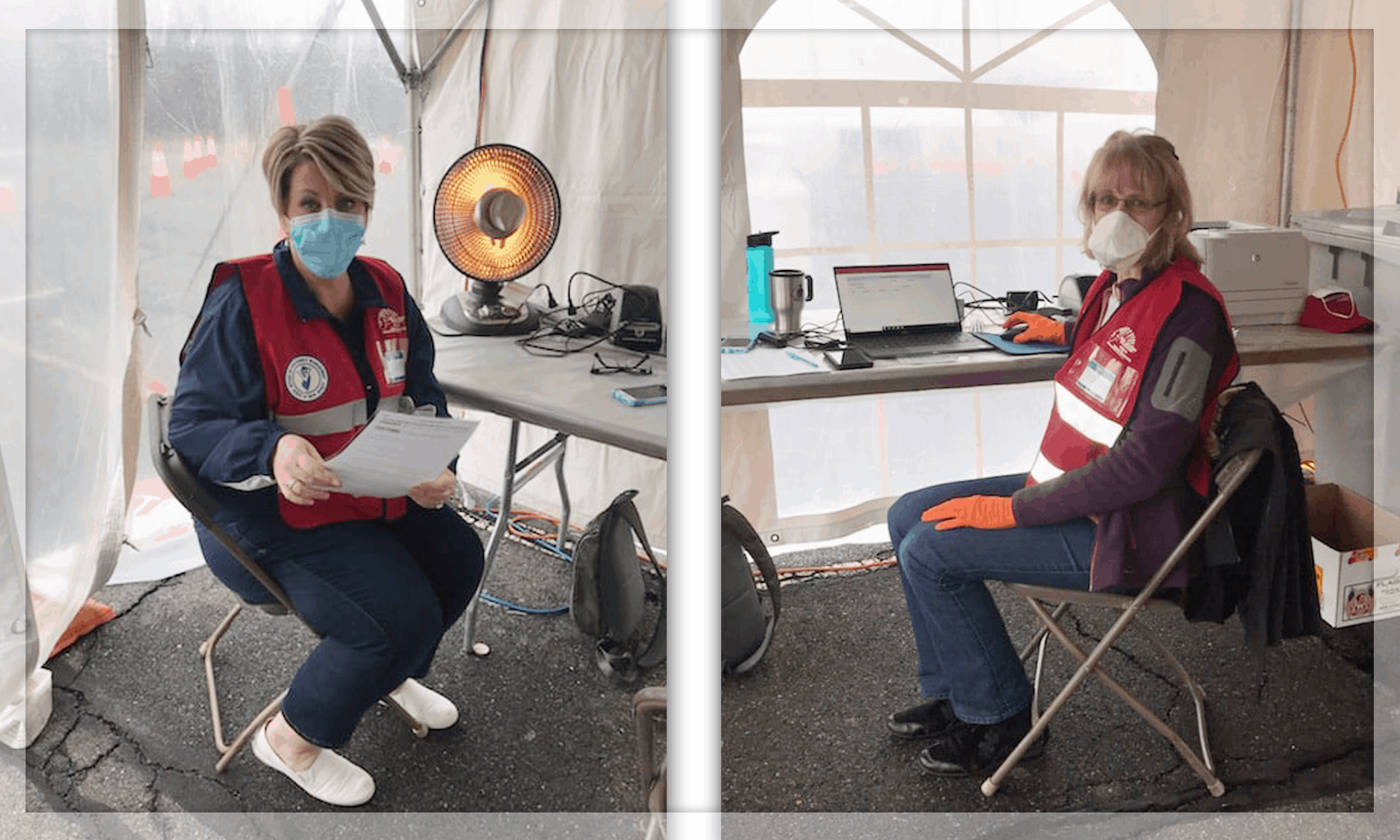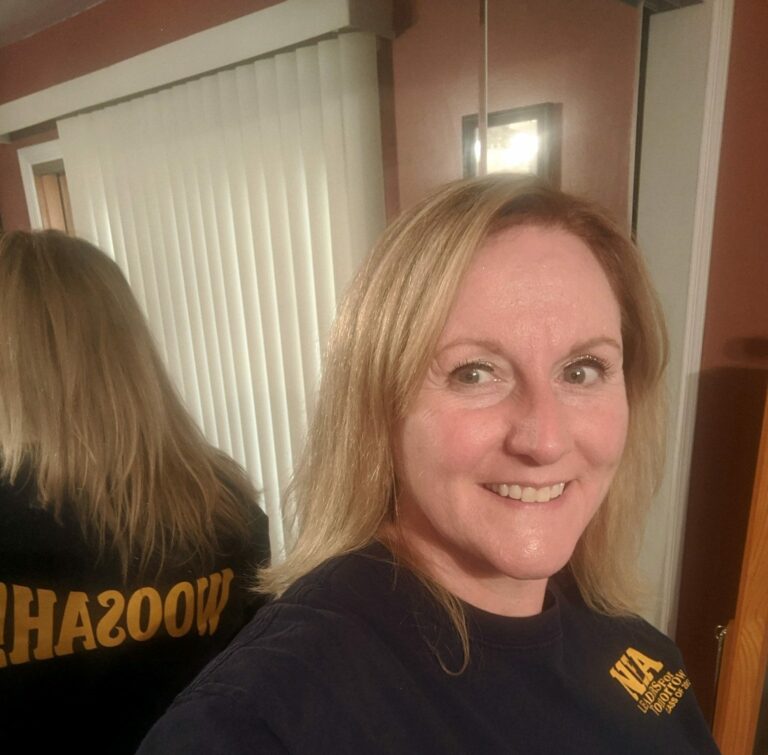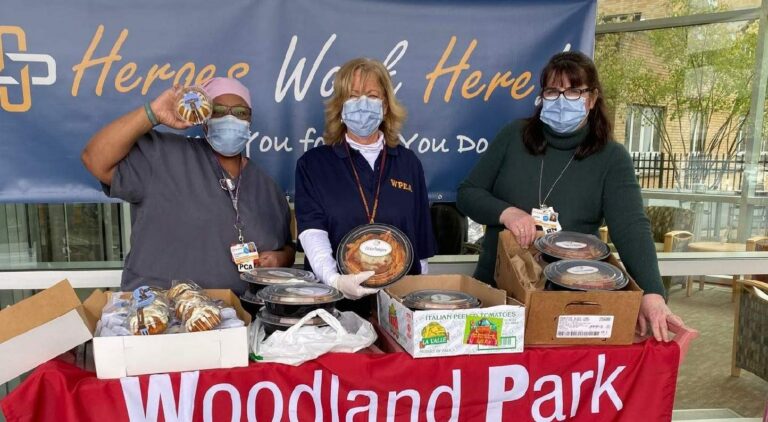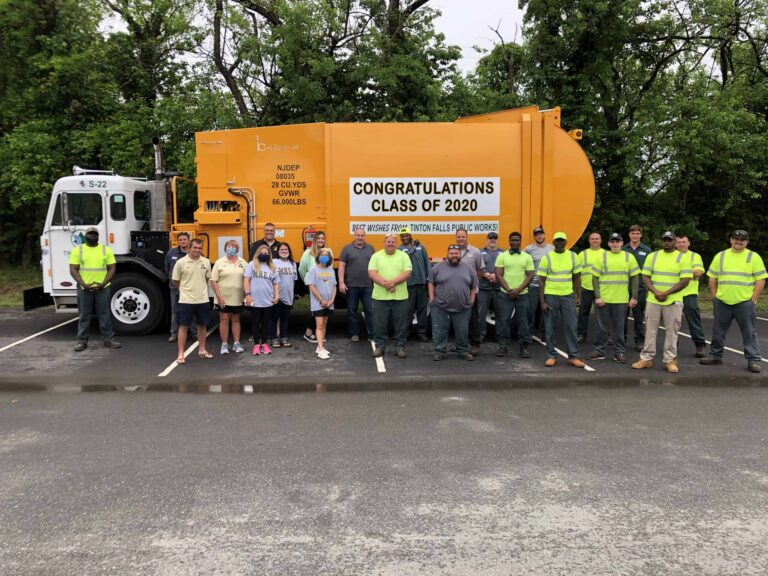Karen Jordano and Regina Adamson, school nurses at Copeland Middle School and Rockaway Twp. Education Association (RTEA) members, have served at the COVID-19 screening center at the County College of Morris for the past two weeks.
In late March, the Morris County School Nurses Association shared a request for volunteers by the Morris County Medical Reserve Corps.
Jordano and Adamson reached out to their superintendent, Dr. Peter Turnamian, who supported their interest in volunteering.
“We have a lot of responsibility as school nurses, but we felt that this was something that we could do to help our community, and with the Dr. Turnamian’s support, we felt we could balance our volunteer work with our responsibilities as school nurses.”
Jordano and Adamson completed 12 hours of online training through the Federal Emergency Management Association (FEMA) and an all-day training at the Morris County Office of Health on March 28.
On Monday, March 30, they showed up at the COVID-19 testing site at the County College of Morris on a freezing, rainy day, and took up their position at the second station at the testing site.
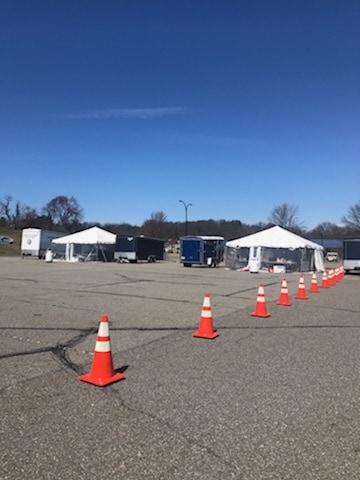
The Morris County Office of Health set up the drive-thru testing site to limit exposure for everyone. At the first tent, police officers stop incoming cars to ensure that each one has an appointment to be tested. Patients had already been instructed to contact their primary doctor to secure an appointment and to have a prescription for the test prepared.
At the second stop, patients confirm demographic information, their appointment time, doctor’s information, prescription, and more with Jordano and Adamson. Jordano and Adamson then print out a lab requisition and affix it to the vehicle.
At the first and second stops, patients are instructed to keep their windows up to limit exposure. Even with this precaution, Jordano and Adamson wear masks and gloves. They also wear Medical Reserve Corps vests to help identify them.
At the third station, nurses wearing hazmat suits administer the test, a nasal swab. The swab is sent to a lab and the patient’s doctor is notified with the results within two days.
Jordano and Adamson both volunteered to work two full days per week. Their day begins around 7:30 or 8 a.m. and they work until 2 or 4 p.m., depending on the number of appointments.
“It’s a very busy day, and there are no breaks, but we grab food as we can,” Jordano said. “They feed us very well, though!”
“On our first day, we saw 82 patients,” Jordano said. “On April 6, we saw 300 patients.”
Adamson said that some patients are Spanish speakers and there are language resources available, in the form of bilingual medical staff and a language line operated by the Office of Health Management.
“I think volunteering has helped us,” Adamson said. “It’s hard to hear how hospitals in New York and New Jersey are overflowing and essential medical personnel are overwhelmed. We felt that we needed to help in whatever way we can.”
That sense of duty is a family trait. Jordano’s two teenage children have both volunteered to help with non-medical tasks at the testing site. Her older child is a sophomore nursing student at Seton Hall and her son is a senior at Morris Knolls High School.
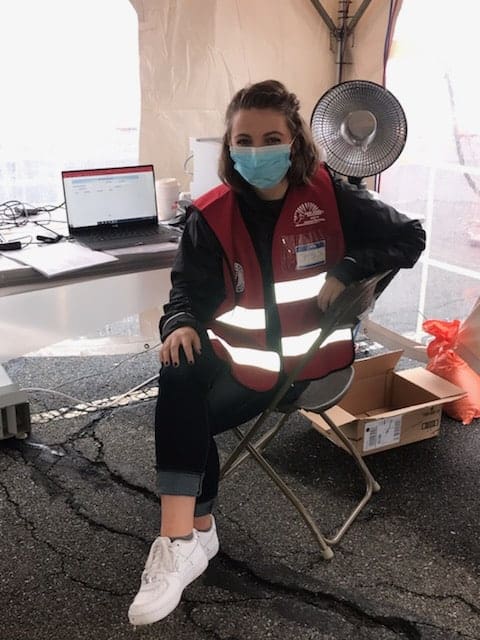
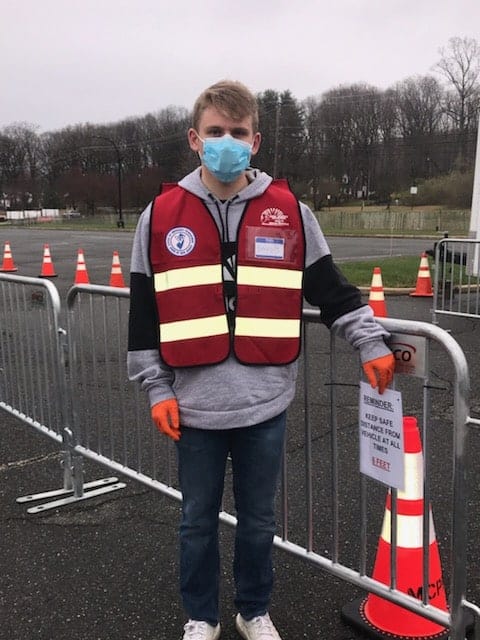
Adamson’s daughter has volunteered to give blood; the American Red Cross is urgently requesting the people donate if they can.
“You don’t need a background in medicine in order to volunteer,” Jordano said, “And we always need people to step up and give blood. There are many ways that people can help, if they are able to do so.”
Jordano and Adamson are also planning to volunteer at the telephonic triage center for COVID-19. The telephonic triage center answers calls from people with questions about COVID-19 and notifies patients of their test results. This volunteer activity can only be done by those with medical training.
As school nurses, Jordano and Adamson have many responsibilities, even as students and staff have moved to remote instruction. They maintain health information on the school’s website, ensuring that parents, students, and staff have access to information and resources to stay healthy during the crisis.
That expertise is respected and highly valued by their colleagues at the RTEA. “The RTEA commends Karen and Regina for their selfless service during this time of need,” RTEA Co-President Brian Adams said.
As a result of their volunteer work on COVID-19, and the training they received, they believe they are even better resources for their school community.
“We are sharing the information we have received as a result of our COVID-19 trainings, and what we’re learning on the ground at the testing site,” Adamson said. “We are still participating in nursing meetings in our district, we’re sharing resources, and we’re gathering information to help our school community.”
“We don’t know when the re-entry to school is going to happen,” Jordano said. “But we are already thinking about what precautions we need to take based on what we are learning about this virus and how we can keep our school community safe.”
“What we are doing is a drop in the ocean compared to the need that is out there,” Adamson said. “So many medical professionals and first responders are doing so much more. This is what we are able to do to support their efforts.”

